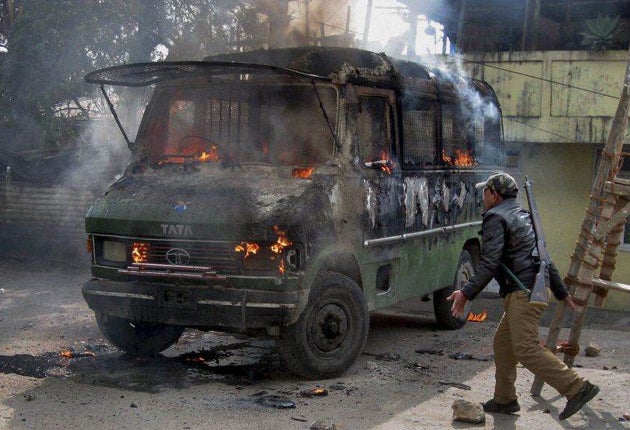Strikes take Darjeeling tea estates off the boil

Your support helps us to tell the story
From reproductive rights to climate change to Big Tech, The Independent is on the ground when the story is developing. Whether it's investigating the financials of Elon Musk's pro-Trump PAC or producing our latest documentary, 'The A Word', which shines a light on the American women fighting for reproductive rights, we know how important it is to parse out the facts from the messaging.
At such a critical moment in US history, we need reporters on the ground. Your donation allows us to keep sending journalists to speak to both sides of the story.
The Independent is trusted by Americans across the entire political spectrum. And unlike many other quality news outlets, we choose not to lock Americans out of our reporting and analysis with paywalls. We believe quality journalism should be available to everyone, paid for by those who can afford it.
Your support makes all the difference.The hills in Darjeeling, famed for their celebrated tea estates, came to a halt yesterday as large crowds of people took to the streets to protest the shooting by police of two activists who were part of a movement demanding a separate state.
While the shut-down was not total, officials from the Gorkha Janmukti Morcha (GJM), a political party which is fighting for a state within India, claimed "thousands and thousands of people" answered the call for an indefinite strike. Reports suggest work was suspended at the majority of the tea estates, which had been in the process of harvesting the highly-prized "first flush" of the season.
"Our people came out on the streets after our members [died] from sustaining bullet injuries," Roshan Giri, general secretary of the GJM, said from Darjeeling. "We have demanded an investigation inquiry into this... they fired to suppress the Gorkhaland movement. Our people were on hunger strike, the national flag was flying. How could they open fire?"
In the aftermath of the shooting, which happened as protesters were holding a rally, hundreds of people went on the rampage, attacking government property and setting fire to at least 20 buildings. The chief minister of West Bengal, Buddhadeb Bhattacharjee, unsuccessfully lobbied for the army to be dispatched. "The GJM's violent methods are not at all acceptable," he said. "When efforts are on to evolve a political solution to the Darjeeling issue... the GJM has gone for violent methods."
The battle by the Nepali-speaking Gorkhas to break from West Bengal and form their own state inside India dates back several decades and at one time was spearheaded by an armed struggle that resulted in 1,200 deaths. Four years ago, the GJM was formed to try and secure the goal using what it promised would be peaceful means.
The desire for statehood is pushed by two factors. Firstly, the people of Darjeeling, once known as the Queen of the Hills, argue with some justification that the state authorities in Kolkata have ignored the hills area and failed to provide schools, hospitals or infrastructure. Secondly, they say the Gorkhas suffer discrimination across much of India from people who do not know where Darjeeling is. They claim that their own state, but one that remained part of India, would elevate their profile.
The GJM has often called strikes or shutdowns to put leverage on the state and national authorities. However, not everyone in the hills is in favour of them because of the economic hardship it enforces on people. On some occasions, while hotels and restaurants have been shut and roads blockaded, the GJM has made an exception for the hills' 87 tea estates, which are said to support more than half of the 1.2 million-strong population.
Sandeep Mukherjee, of the Darjeeling Tea Association, said work had been halted at a time when the estates were harvesting the first flush. While Darjeeling only accounts for 1 per cent of all the tea produced in India, more than four-fifths is exported. "The tea estates have 55,000 permanent workers who are not going to get paid because they are not checking in. It is causing economic hardship to them as well as damaging the producers," he said.
The local MP, Jaswant Singh, met with the country's home minister to discuss the matter. He called the actions of the West Bengal authorities "shameful and inhuman". He added: "I charge the West Bengal government and police with dividing the people rather than taking the initiative for unity."
The police claimed 20 people, including seven police officers, were hurt in clashes that took place before the firing, and that they fired on the authorisation of a magistrate to restore order.
Join our commenting forum
Join thought-provoking conversations, follow other Independent readers and see their replies
Comments